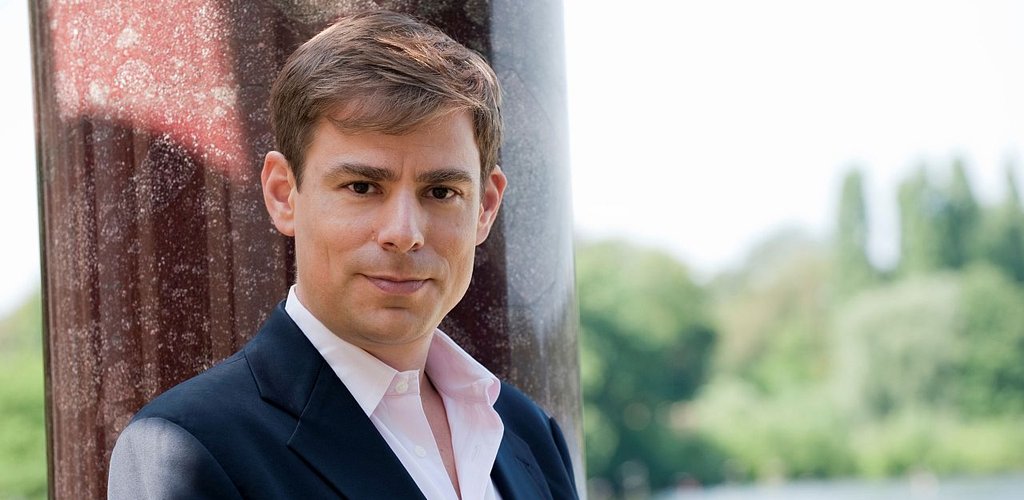Bass-baritone Hanno Müller-Brachman, last heard by BFO audiences as Papageno in our 2015 performance of the Magic Flute, is one of the soloists of our Compassion concerts. Throughout his career, he has sung the St. Matthew Passion on several occasions to great acclaim, with the world’s best orchestras. However, this performance of the St. Matthew Passion will be unique.
Júlia Váradi: Mr. Müller-Brachmann, this time Bach’s world-famous Passion will sound very different from anything before. It will be performed “divided", i.e. supplemented by various other pieces of music. What do you think about Iván Fischer’s idea to also commemorate those innocent people who are now suffering in different parts of the world?
Hanno Müller-Brachmann: I find the concept really remarkable, relevant and exciting, and I am delighted to be a part of it. I’ve been collaborating with Iván Fischer for a long time and have enjoyed every occasion. The last time I sang the St. Matthew Passion with him was at Carnegie Hall, New York, and it was a resounding success. But now that the we have pictures of suffering coming to us from all corners of the world, I think, this is a beautiful way of performing it, which also suits the form of the Passion perfectly. It demonstrates and proves that the piece is not something ancient and dusty, but just the opposite, it can be absolutely relevant. In this way, our performance can touch people more deeply.
V. J.: Don’t you think that audiences should hear such a fantastic and well-known composition by Bach in its entirety and original form, and that Iván Fischer’s idea to mix 18th century music with contemporary pieces might be too daring? Doesn’t he compromise the “sanctity” of the composition?
H. M-B.: I’m actually a deeply conservative person, but I also fully trust Iván Fischer. I’m sure he is a conductor of great sensitivity, who would never do something out of self-conceit, but only for the sake of art and music. All his extraordinary ideas have the sole purpose of enhancing the musical experience. That’s why I trust him completely. And actually, Bach himself often borrowed parts from other works. For example, his Weihnachts-Oratorium was originally a cantata composed in honor of the Prince, and he took some parts of it and inserted them into the Weihnachts-Oratorium. People’s attitudes to these things were much more relaxed in those days. The St. Mattew Passion is of course sacred, but the fact that we choose this great work to create new ideas by complementing it and adding new solutions to it shows that the greatest values are worth examining and rethinking so that we can better understand and empathize with current political and social traumas.
V. J.: Do you know the pieces that are inserted into the great composition?
H. M-B.: I know a few of them. I was most impressed by Ravel’s Kaddish, which I heard with the violin solo of the BFO’s concertmaster. I thought it was very moving and beautiful.
V. J.: You have performed in Iván Fischer's highly successful Mozart operas on many of Europe's famous opera stages, where you feel at home as an opera singer. It may sound a strange question, but I wonder whether singers need to be close to God to be able to properly perform such a sublime and sacred piece as the St. Matthew Passion?
H. M-B.: I come from the Basel Boys’ Choir; I learnt to sing there. I grew up with Lutheran church music, so basically that is my background. Later, I ended up by chance at the Staatsoper Berlin with Daniel Barenboim. But I am also currently the leader of a boys' and girls' choir in a Protestant church in Basel, where I work with 200 children to pass on church music to future generations. I don't say that a singer with a secular background could not identify with this composition just as well. This is not a key factor for good interpretation.

